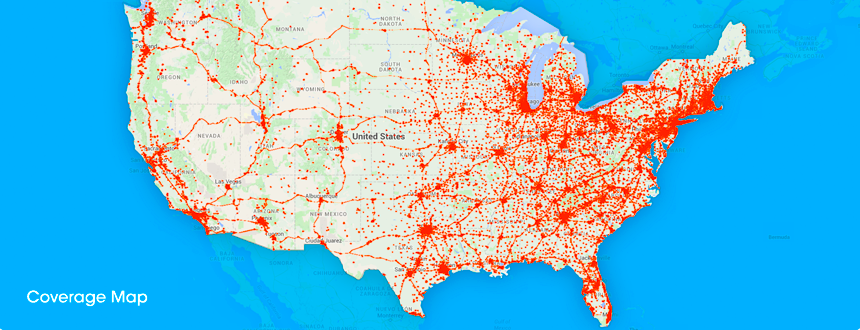FreedomPop Launches $5 Unlimited Public WiFi Access, But Is It Worth It?
While major wireless carriers are investing billions of dollars in LTE services, a Los Angeles-based tech company is aiming to capture some of their customers by offering unlimited access to millions of WiFi hotspots across the U.S. for as little as $5 a month. While that might seem like a deal you just can’t pass up, the new service likely isn’t an attainable alternative just yet.
The Wall Street Journal Digits Blog reports that FreedomPop took aim at often expensive cellphone service plans on Wednesday by launching a WiFi service that claims to give users the ability to automatically sign on to nearly 10 million hotspots across the country, that would typically be unavailable to the the public.
While FreedomPop isn’t offering a service that could replace most consumers’ smartphone plans, CEO and founder Stephen Stokols believes it could be of particular use to the many millions of Americans on prepaid smartphone plans with strict monthly wireless data limits.
“We actually think this could become a pretty big alternative, especially in prepaid,” Stokols tells Digits. “They’re able to save 40 bucks a month and still have connections most of the time.”
In all, Stokols believes FreedomPop, which already offers other mobile services, could capture as many as 30 million of the 75 million Americans who use prepaid services.
CNET reports the company also plans to target non-traditional cellphone users, such as those who don’t want to chew up their cellular minutes or data, those with a Wi-Fi-only tablet, and even those who have a cellular-deactivated phone but would still like to use it to get online via Wi-Fi.
Still, signing on to the hotspot service likely isn’t a foolproof replacement for regular cellphone use. For example, while smartphone users can move around and seamlessly transition from cell tower to cell tower, people who rely on WiFi hotspots don’t have the same flexibility. And just like cell towers, WiFi hotspots can become congested when too many users are connected.
Customers could also run into issues when it comes to service areas. While FreedomPop says it plans to cover the top 200 major metro areas by the end of the year, people living in rural areas –– who are among those most in need of ways to access broadband — will likely be left without service.
In order to offer customers WiFi access, FreedomPop had to enter into deals with companies that build the hotspots in public places. Stokols wouldn’t name specific companies involved in the deals, but places like Starbucks, McDonald’s, Best Buy and other retailers have their own hotspots.
When checking to see if we were covered by FreedomPop’s service area in Washington, D.C., (we were), the company’s availability page didn’t offer details on specific areas of coverage or how much space was between local hotspots.
Stokols tells Digits he expects the number of hotspots covered by FreedomPop’s plan to exceed 20 million later this year.
Whether or not the FreedomPop network has any value for you is going to depend your location and your particular broadband needs.
Someone who travels a lot for business and frequently has to scour each location for free or affordable WiFi so they can do their work before heading off to their next destination may want to investigate FreedomPop. Or if you are constantly using your wireless data and regularly come up against the limits of your monthly allotment, a service like this might be an alternative worth looking into rather than committing to a more expensive data plan.
Could This New FreedomPop Wi-Fi Service Be an Alternative to Wireless Bills? [The Wall Street Journal Digits]
FreedomPop rolls out unlimited Wi-Fi for $5 a month [CNET]
Want more consumer news? Visit our parent organization, Consumer Reports, for the latest on scams, recalls, and other consumer issues.


